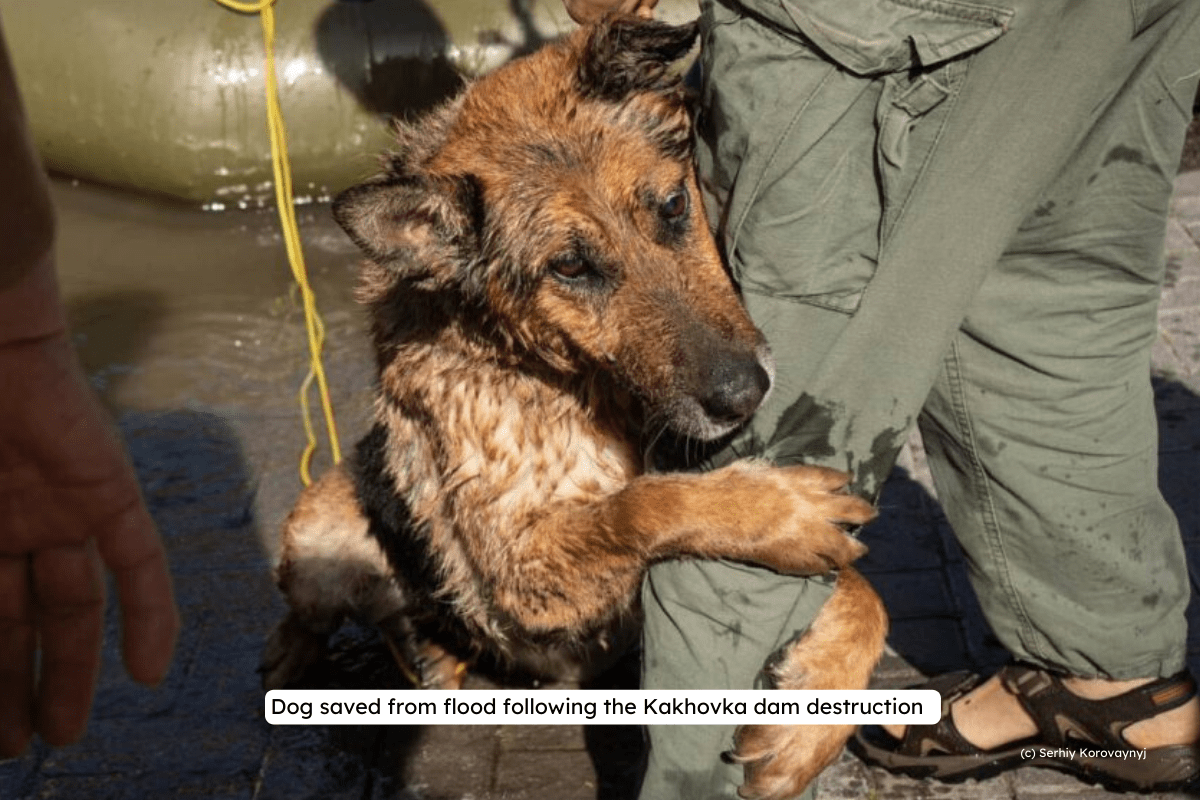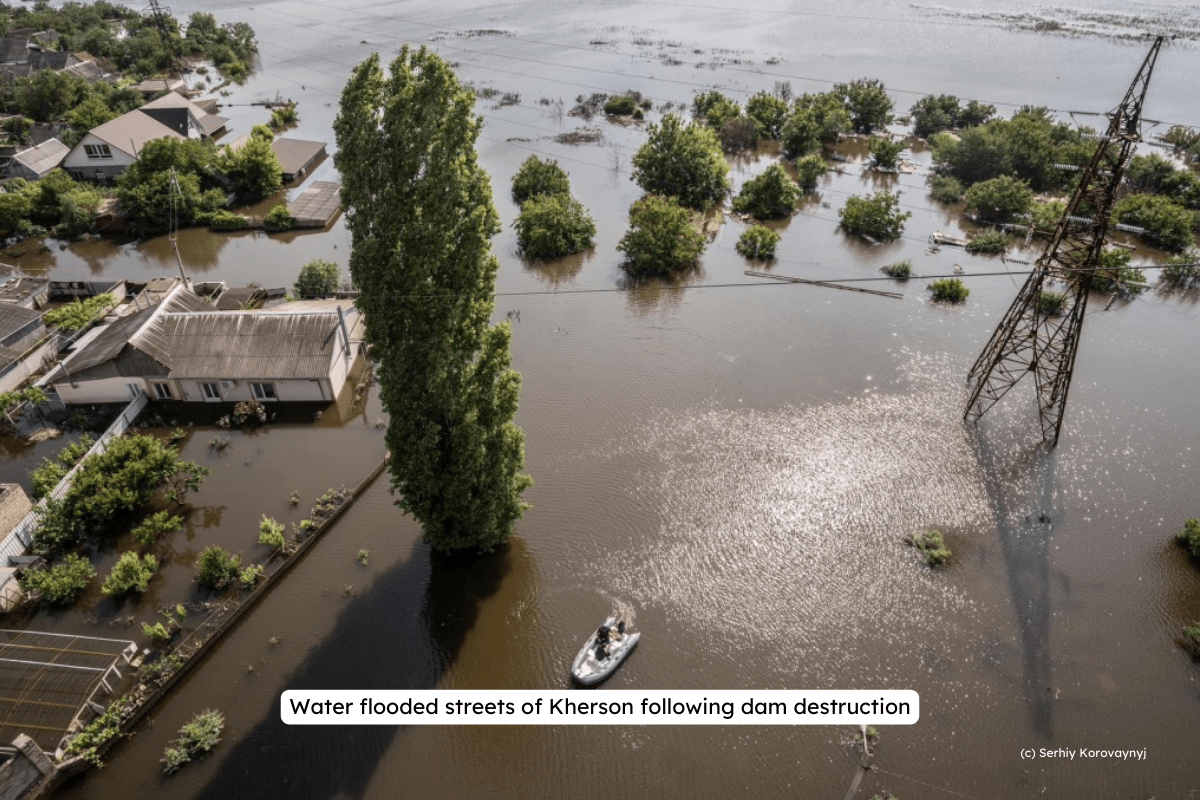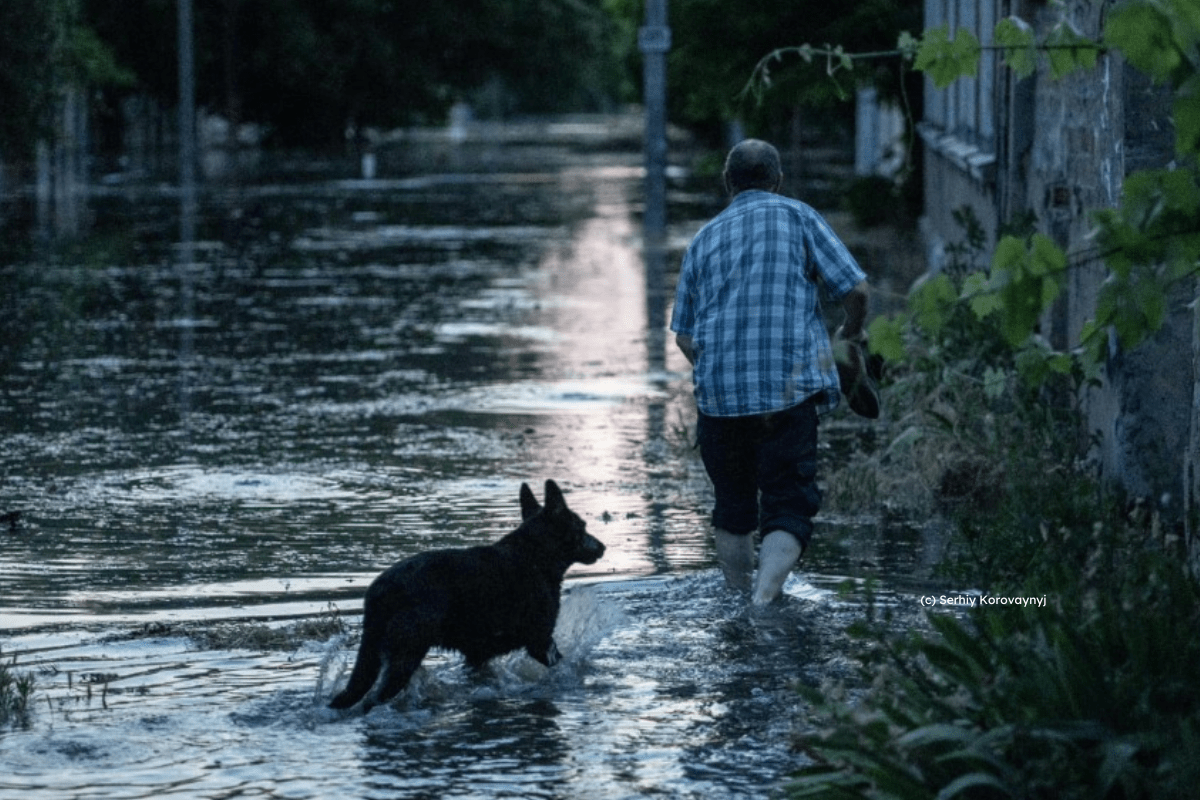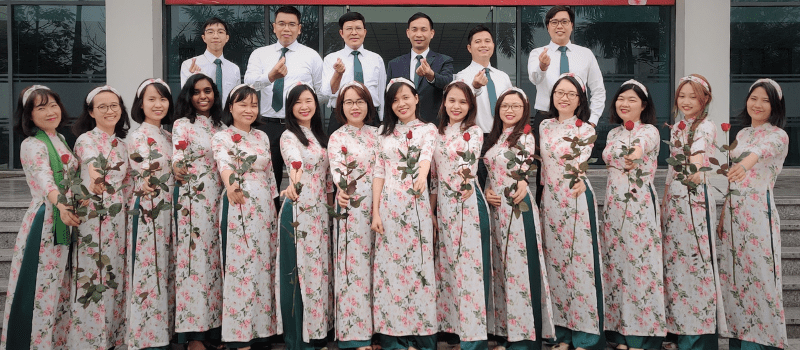Following the launch of the full-scale invasion in Ukraine, the nation has faced monumental challenges – socially, economically, and environmentally. Ukraine’s crisis isn't about the conflict alone; it has also created devastating ecological impacts that continue to threaten people and animals within and beyond its borders. Amidst global concerns over climate change, and as we highlight environmental stories during Earth Month, it's crucial to grasp how conflicts intertwine with environmental damage, which is leaving both people and animals in chaos.

Conflict & climate
The conflict in Ukraine underscores the connections between warfare, energy, and climate change. The destruction of the Kakhovka dam last year is just one example of these links. According to the UN’s Environment Programme and rapid environmental assessment, the dam’s destruction created environmental chaos, including “hydrological and geomorphic impact, chemical contamination, waste, and ecological damage, including to protected areas”. The flood itself is estimated to have trapped thousands of animals – including companion and farm animals, along with wildlife, with many tragically drown by the raging waters. Fortunately, organizations including Veterinarians Without Borders North America’s (VWB) on-the-ground partners in Ukraine, were able to provide swift search and rescue efforts to save animals trapped by the floods, bringing them to shelters for veterinary care. Access to clean drinking water and sanitation were also impacted by the dam’s destruction.
The Kakhovka dam breach in June 2023 caused a catastrophic flood, affecting 620 km² of land, including many protected areas of national and international importance.
Looking into the future
Before the full-scale invasion in 2022, Ukraine was making strides in climate action, aligning with global climate goals like the Paris Agreement. However, the upheaval has disrupted these efforts, diverting resources from climate action. As climate change continues to create extreme weather events globally, Ukraine will be no exception. This is predicted to include more intense temperatures, rainfall patterns, heat waves, and water scarcity. Conflict-created environmental degradation, such as the Kakhovka dam destruction, will only contribute to these challenges.
The need for solutions that will provide short-term solutions, such as search and rescue efforts, urgent veterinary care, and shelters for displaced animals, will remain significant across Ukraine as the effects of climate change progress. Long-term solutions that will help mitigate the effects of climate change, such as alternate fuel sources and protection against the spread of zoonotic diseases, are also likely to amplify in the coming years. Together with local partners, VWB is working to ensure the framework for support services exists to address some of these growing challenges. Things like creating larger and more fully equipped shelters, spay/neuter surgeries, and ongoing vaccination campaigns are just some of the ways VWB is helping to provide support now, and hopefully, in the future.

Urgent action
As Ukraine navigates conflict and climate change, urgent action is also needed to prepare Ukrainian communities and their animals for environmental disasters. International solidarity, alongside grassroots initiatives, can pave the way for a path forward that prioritizes both people and the environment – even in war-torn nations like Ukraine. Amidst adversity, community resilience and the dedication of conservationists offer hope for a sustainable future amidst turmoil.





